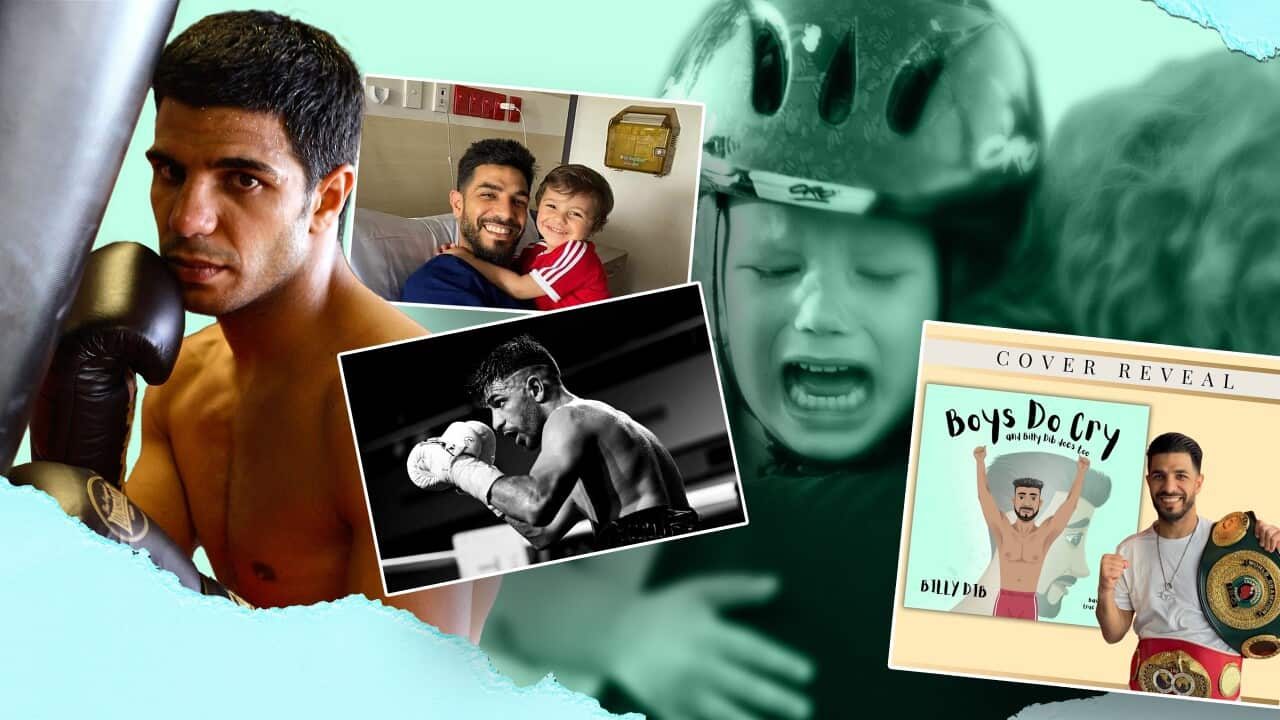Key points:
- Shana says she started to feel different at the age of five and by adolescence, her identity was clear to her
- She says she kept her truth hidden and tried to escape a reality that was not acceptable in her Lebanese Catholic family
- She tells the story of her confrontation with herself, her family and the Arab community in Australia, and how to achieve peace with oneself
Ahead of International Women's Day tomorrow (8 March), Shana told SBS Arabic24 that she hoped her story becme a source of inspiration for people to "always be yourself".
Always have the courage to show who you truly are and if that upsets anyone else, well then that's their story, not yours.
Born and raised in Sydney and in a Lebanese Catholic family, the 42-year-old is one of six daughters.
“I grew up in a strict Lebanese Catholic way. Girls were not allowed to go out," she said.
"Everything was restricted. We couldn't talk to boys even though I went to a co-educational school."
She said she first started to "feel different" when she was aged five or six but didn't understand why.
Then, when she was 13, she said she started to have romantic feelings towards a girl she attended school with.
“I kept everything hidden and even tried to convince myself that I was the same as anyone else, and maintained relationships with the opposite sex until the age of 16 and 17 to try to suppress these feelings,” she said.
However, trying to escape reality at a time when it was considered taboo plunged her into depression, she said.
I've tried to just suppress my feelings and pretend otherwise. It was a real struggle for me
“I went through a really depressed state where I shut myself down and thought about suicide several times. I used to stay in the bedroom, listen to loud music, and just try to drown out my sadness and conflict.
“Depression, anxiety and panic attacks accompanied me, and the first real major episode was at 18 years of age.”
Search for support groups
As a teenager in the 1990s, Shana said she started contacting support groups.
It was around the same time that one of her sisters confronted her about her sexuality.
“There was a kind of interrogation with my sister and I was strong enough to tell her that I was actually gay and she scolded me because it was culturally and religiously inappropriate,” she said.
Estrangement from her family
Shana said even though she had come out to her parents at age 21, they had only recently accepted her sexuality after a period of estrangement.
“It was very difficult for my mother in the beginning. We may have been disconnected for two years," she said.
"I was 21 years old at the time and I left my father's house and didn't talk to my mother."
Her father began calling her on a daily basis, begging her to return home and telling her that her mother missed her, she recalled.
I give my mum a lot of credit today, because she's gone from that woman she was 20 years ago to the woman she is now. I know she's still struggling because what I'm living is against her beliefs and I understand that and I don't judge her.
A journey of reconciliation with oneself
Shana said after a difficult, long and exhausting journey, she is now at peace with herself.
“It hurts. I'm a good person, I don't hurt anyone, I don't intentionally go out to hurt anyone, and all I want to do is help people. As a child, I suffered because of my sexuality,” she said.
If I could go back and chat with Jesus, I would tell him to send me to this life like other people, because the path of homosexuality was very difficult.
Shana shares that what hurt her most was not being accepted by her family members at the beginning.
“In my situation, my family was always concerned about outside voices and what people would say," she said.
“I am at peace with myself. I've struggled so hard to get to where I am now. I know that there is still a lot of rejection within Lebanese families. It's not a big problem unless we make it a big problem,” she said.
"If I could go back and sit down and have a conversation with myself at 13 years old, I'd tell myself things will get better.”
*identity protected
Readers seeking support with mental health can contact on 13 11 14 or on 1300 22 4636.
supports organisations to deliver culturally appropriate mental health services.
Listen to the “Good Morning Australia” program from Monday to Friday from 6am to 9am AEST via digital radio and the SBS Radio app, which is available free of charge on






